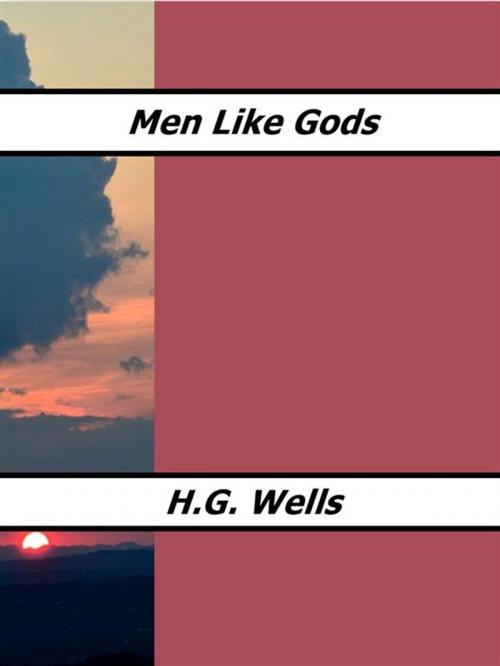Men Like Gods
Science Fiction & Fantasy, Science Fiction, Adventure, Fiction & Literature, Action Suspense, Fantasy| Author: | H. G. Wells | ISBN: | 9788832501421 |
| Publisher: | Enrico Conti | Publication: | January 24, 2019 |
| Imprint: | Language: | English |
| Author: | H. G. Wells |
| ISBN: | 9788832501421 |
| Publisher: | Enrico Conti |
| Publication: | January 24, 2019 |
| Imprint: | |
| Language: | English |
"Men like Gods" is a work that can be defined as science fiction. The book was written and published in 1923. The whole story has as its background the relationship between our universe, our world and other possible universes and worlds. The main protagonist is Mr. Barnstaple, a London journalist, very little satisfied with both his work and his relationship with his wife and family in general.After a painful reflection, Barnstaple decides to take a vacation. The dissatisfied journalist leaves, but suddenly, his car is accidentally transported to a parallel universe, on a planet called Utopia. And here begins a gripping and controversial adventure.
This novel can be precisely defined as a work of utopian science fiction. For this reason, in fact, the book is rather original. At the time, in fact, it was much more likely to come across a similar genre: dystopian science fiction. The substantial difference between utopian and dystopian science fiction is in the different value that the writer of the novel gives to humanity. In the utopian conception, humanity is seen as capable of evolving and therefore of arriving at a sort of universal brotherhood.
"Men like Gods" is a work that can be defined as science fiction. The book was written and published in 1923. The whole story has as its background the relationship between our universe, our world and other possible universes and worlds. The main protagonist is Mr. Barnstaple, a London journalist, very little satisfied with both his work and his relationship with his wife and family in general.After a painful reflection, Barnstaple decides to take a vacation. The dissatisfied journalist leaves, but suddenly, his car is accidentally transported to a parallel universe, on a planet called Utopia. And here begins a gripping and controversial adventure.
This novel can be precisely defined as a work of utopian science fiction. For this reason, in fact, the book is rather original. At the time, in fact, it was much more likely to come across a similar genre: dystopian science fiction. The substantial difference between utopian and dystopian science fiction is in the different value that the writer of the novel gives to humanity. In the utopian conception, humanity is seen as capable of evolving and therefore of arriving at a sort of universal brotherhood.















